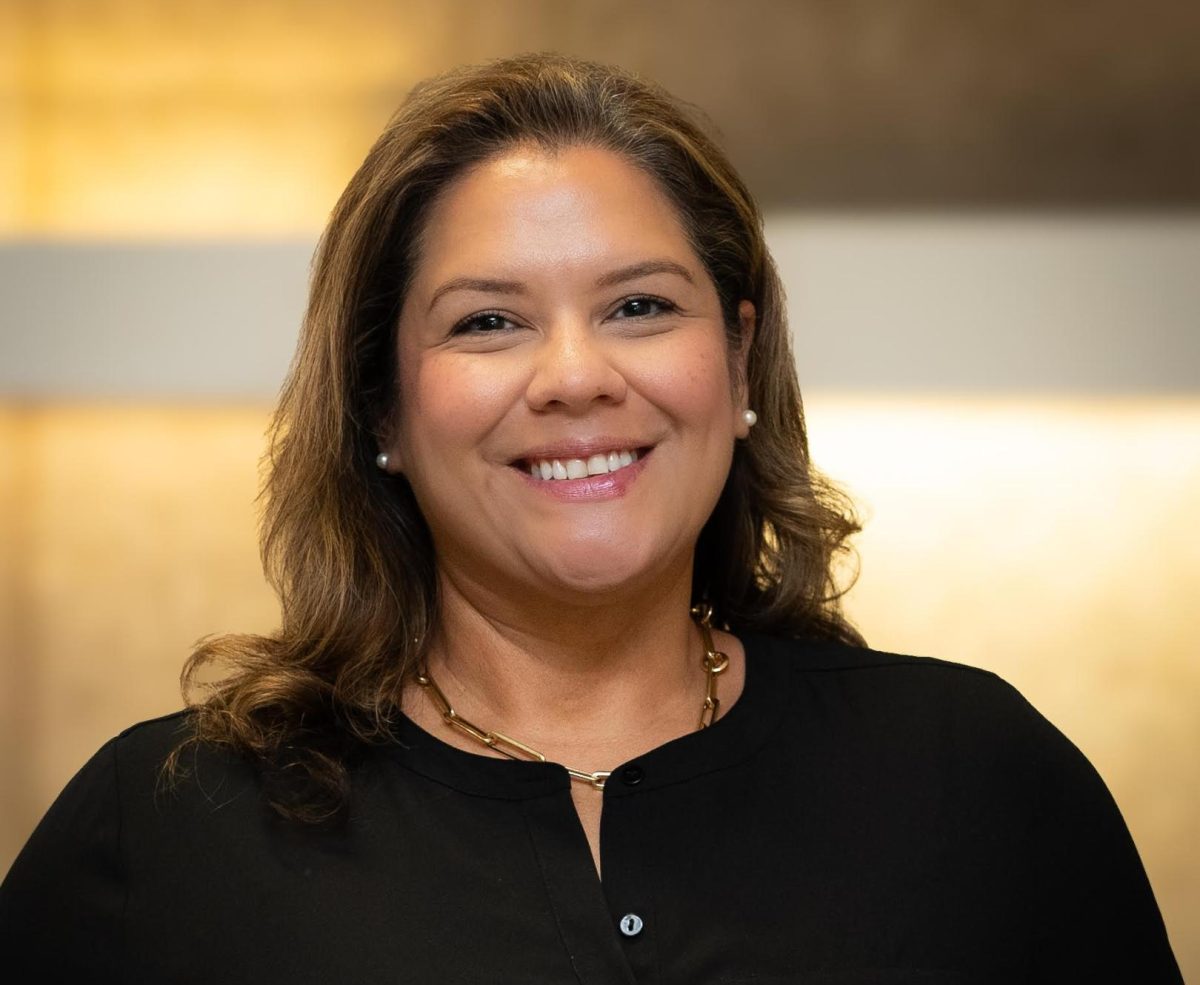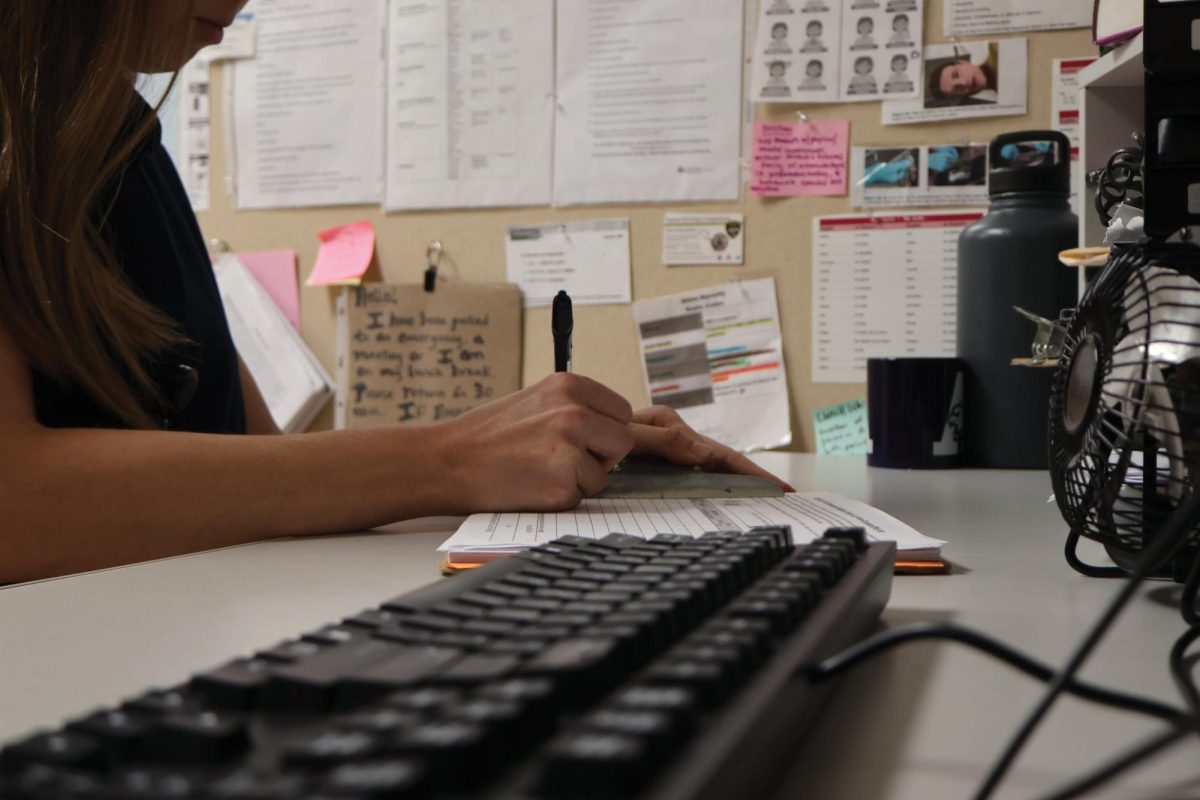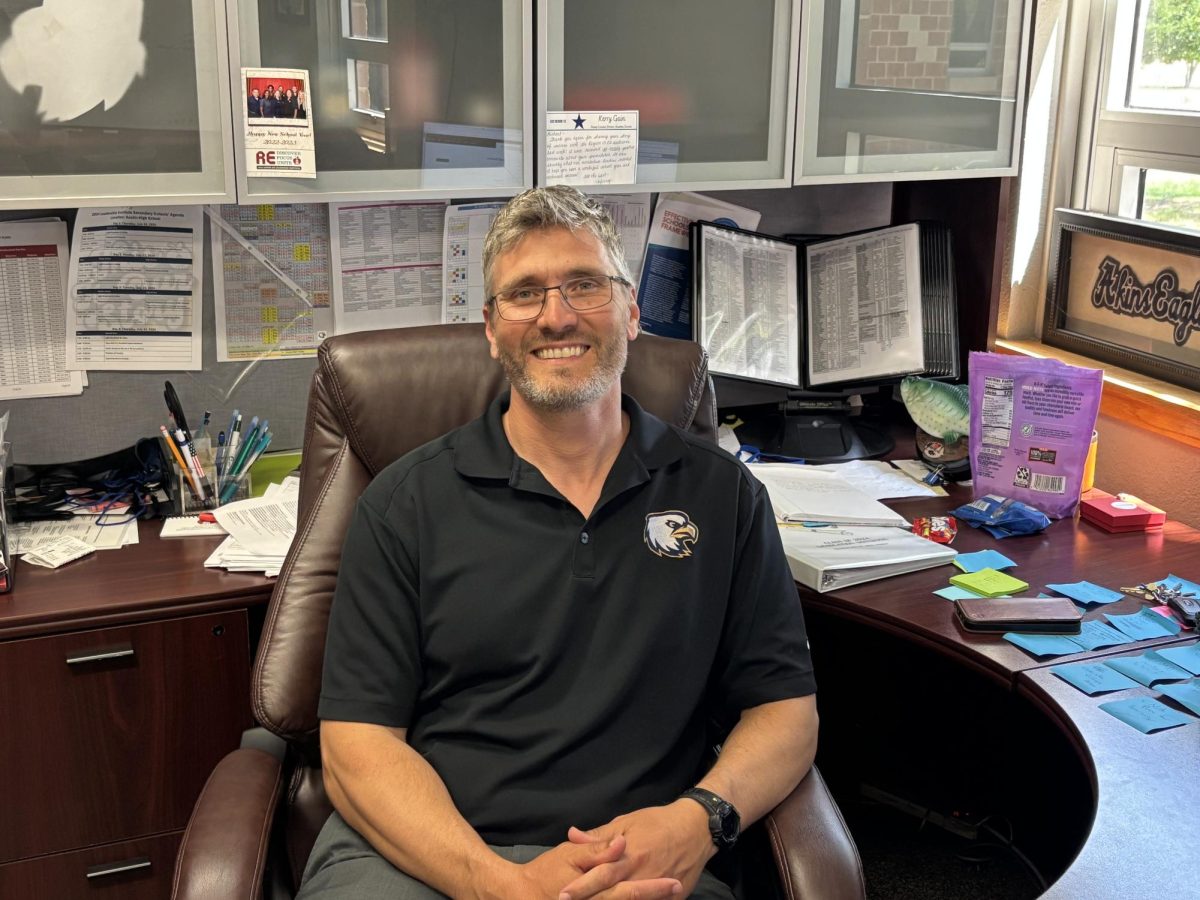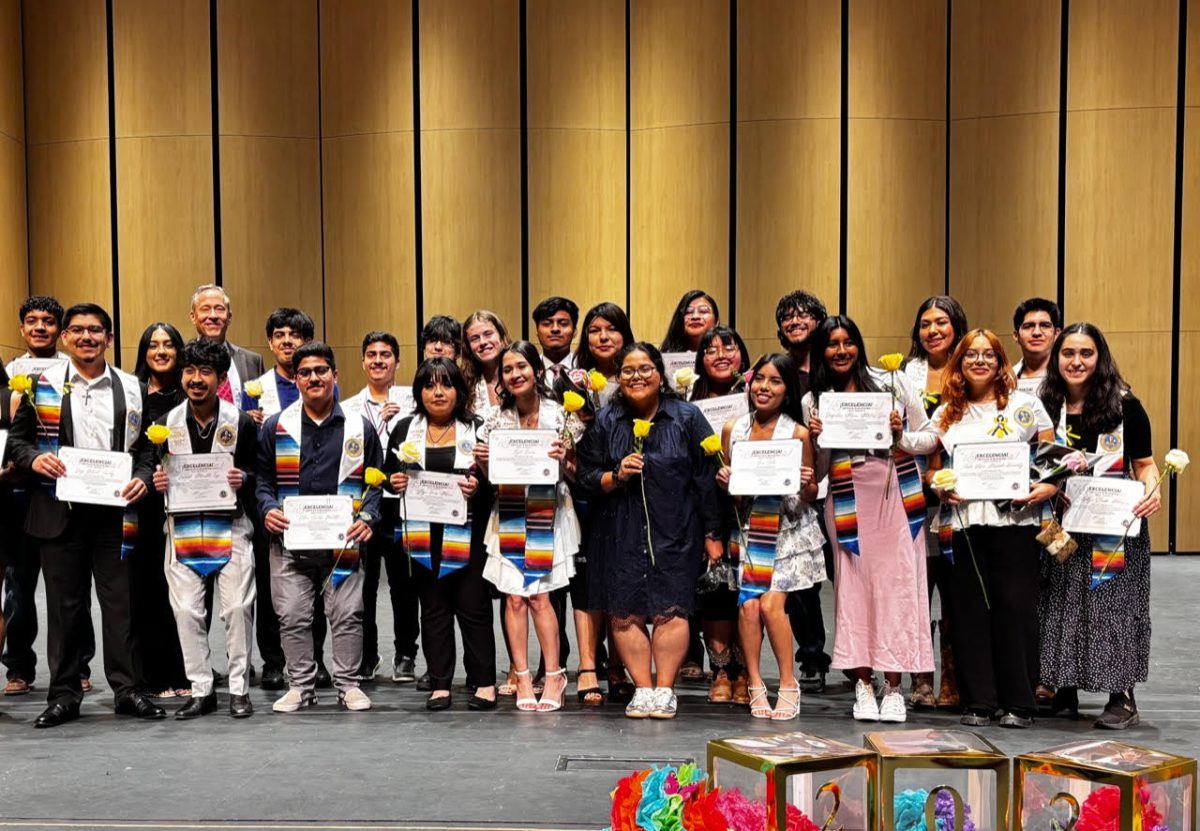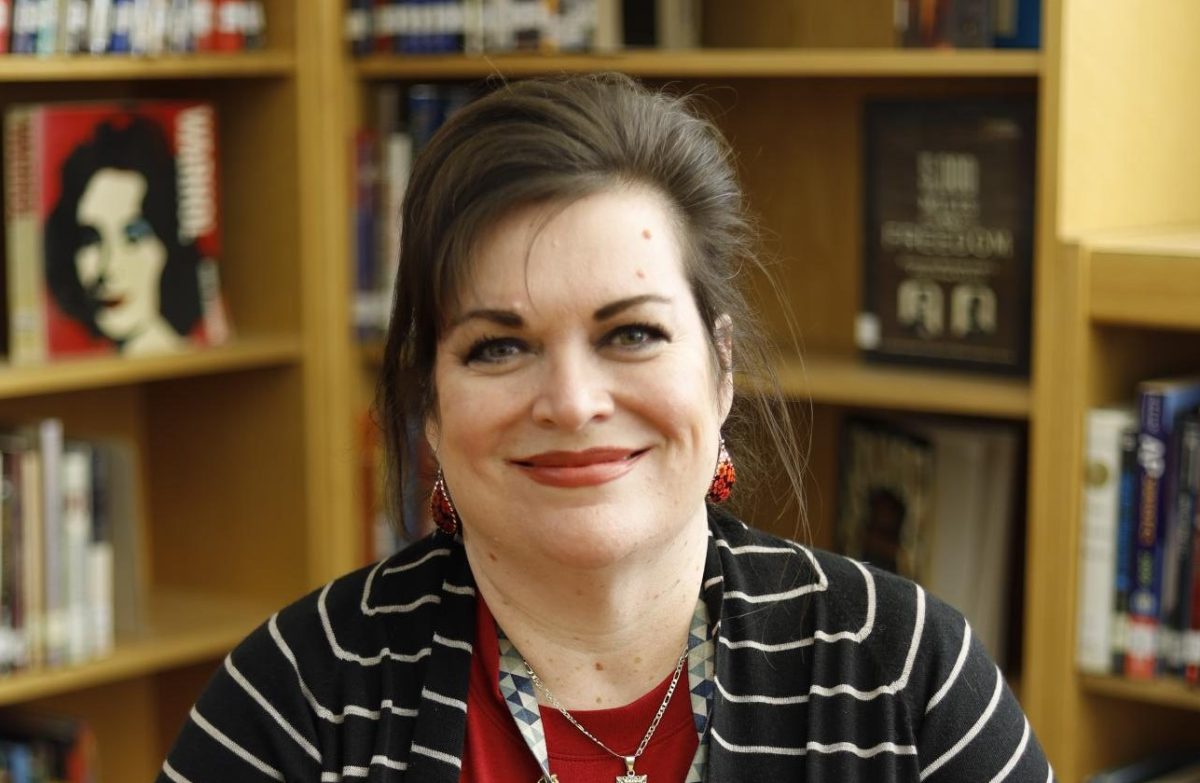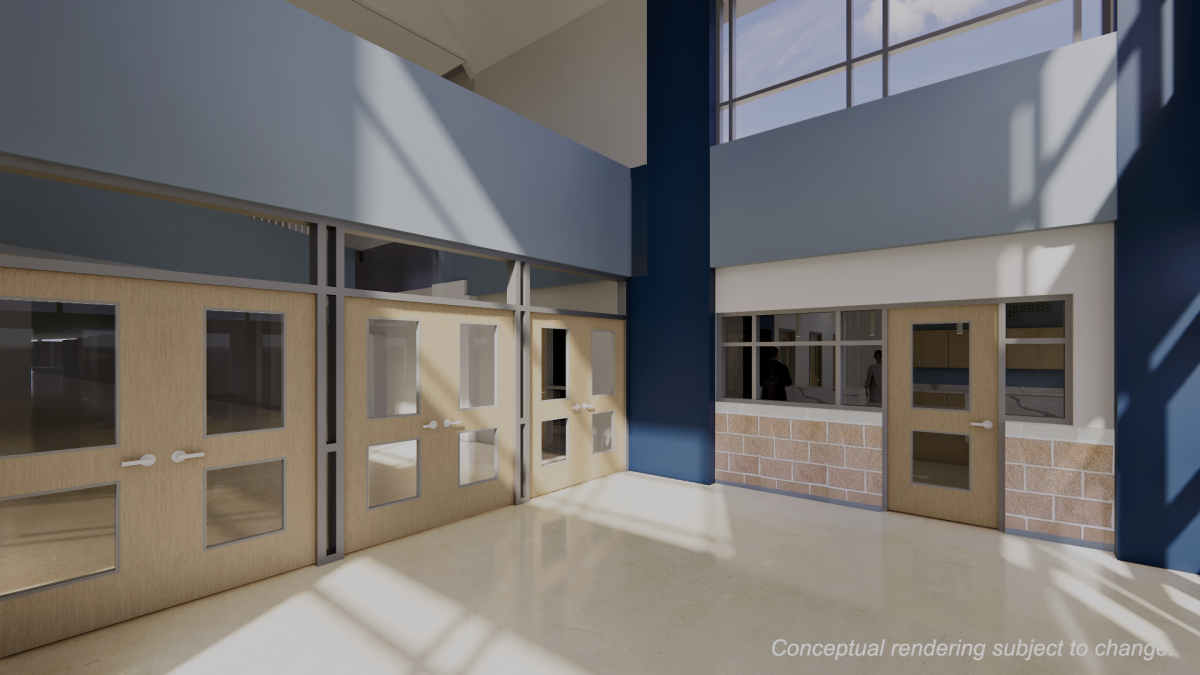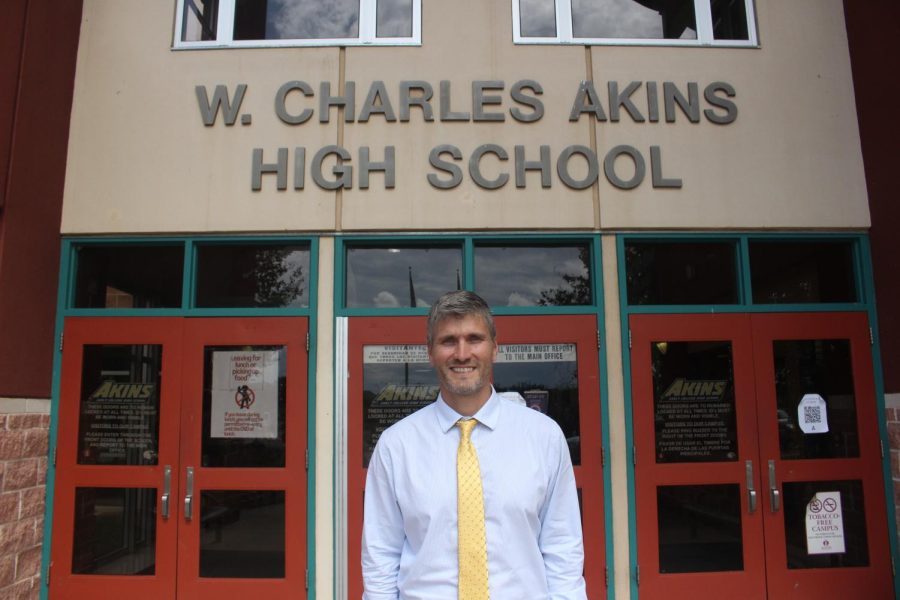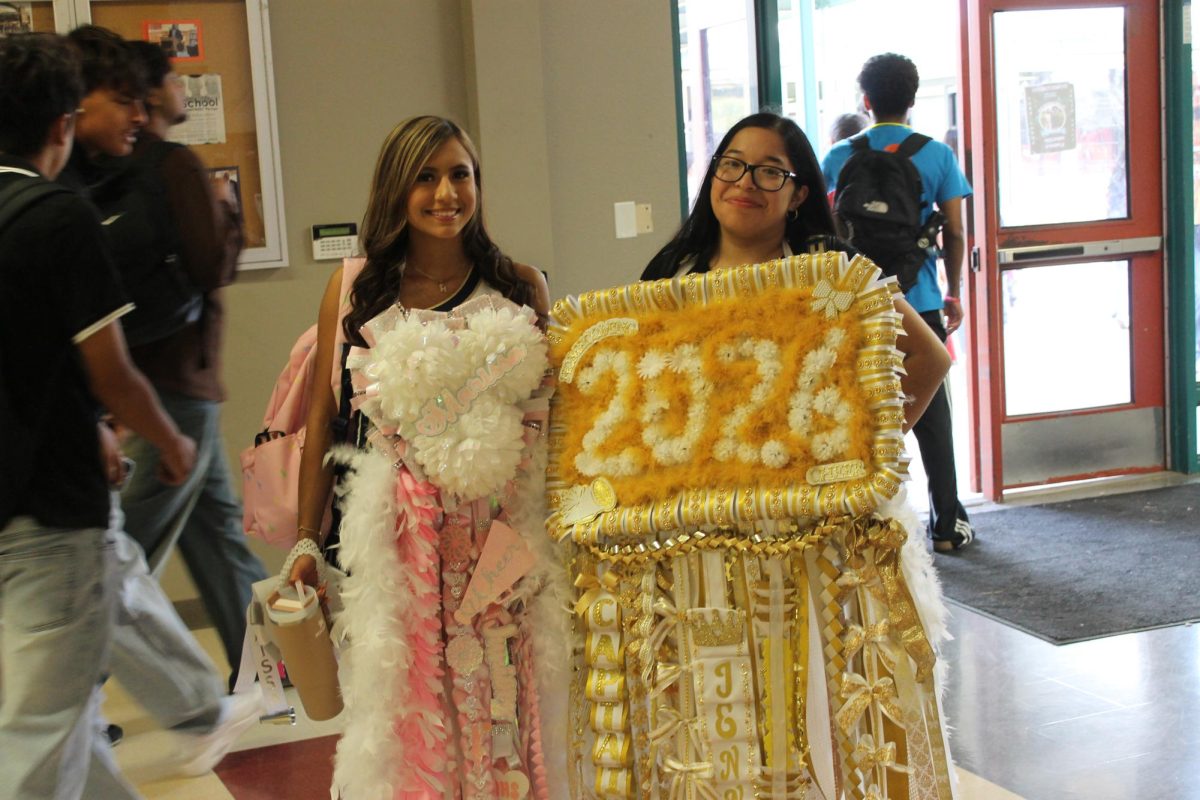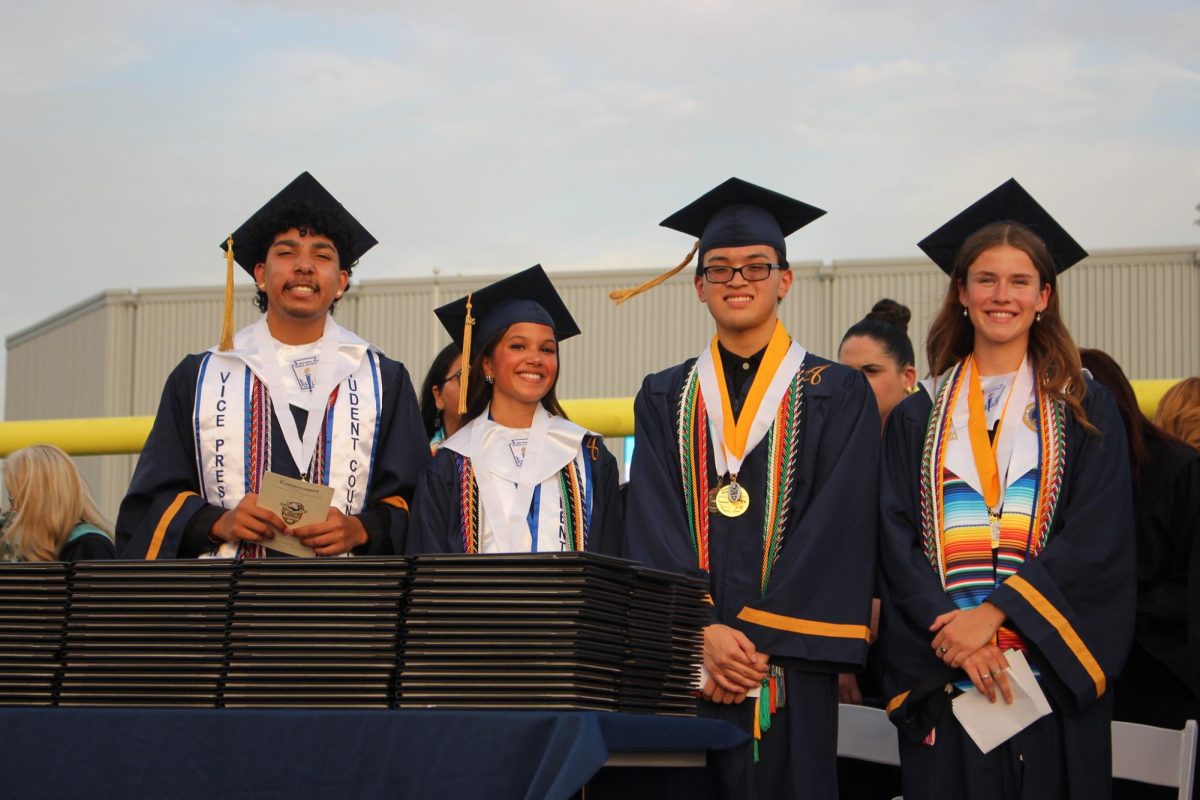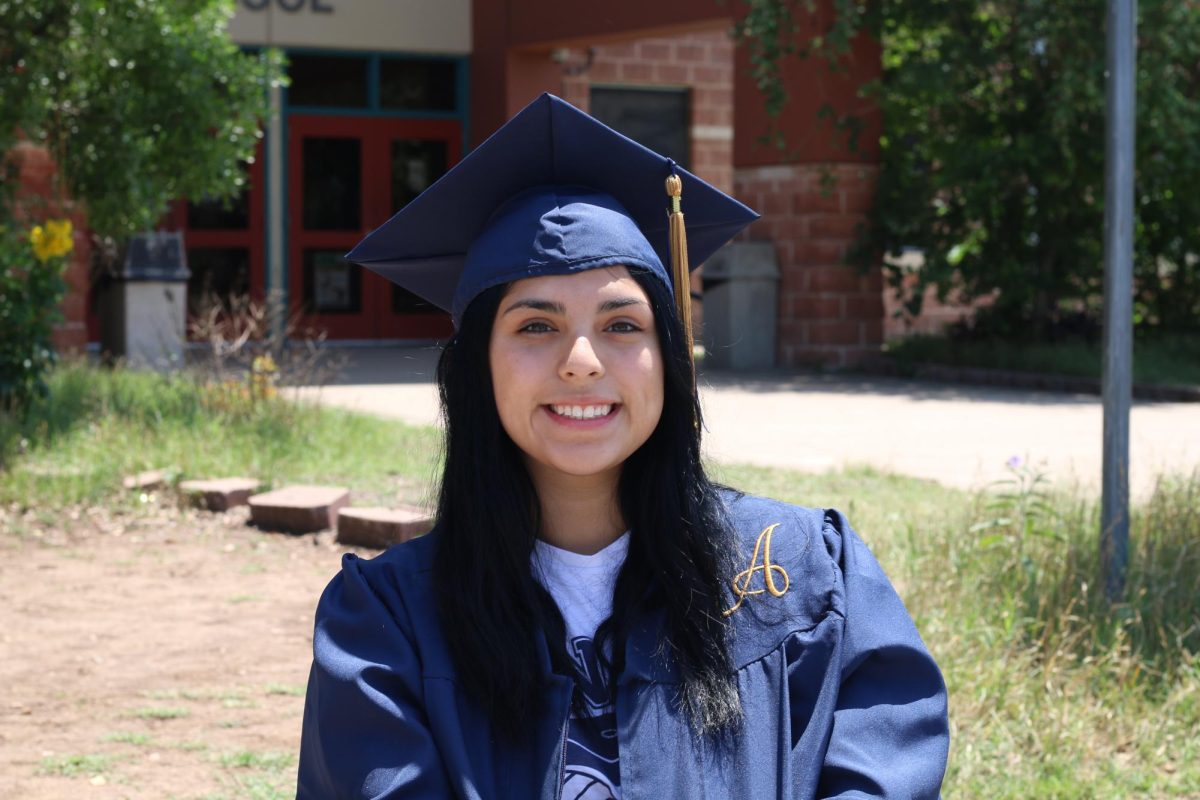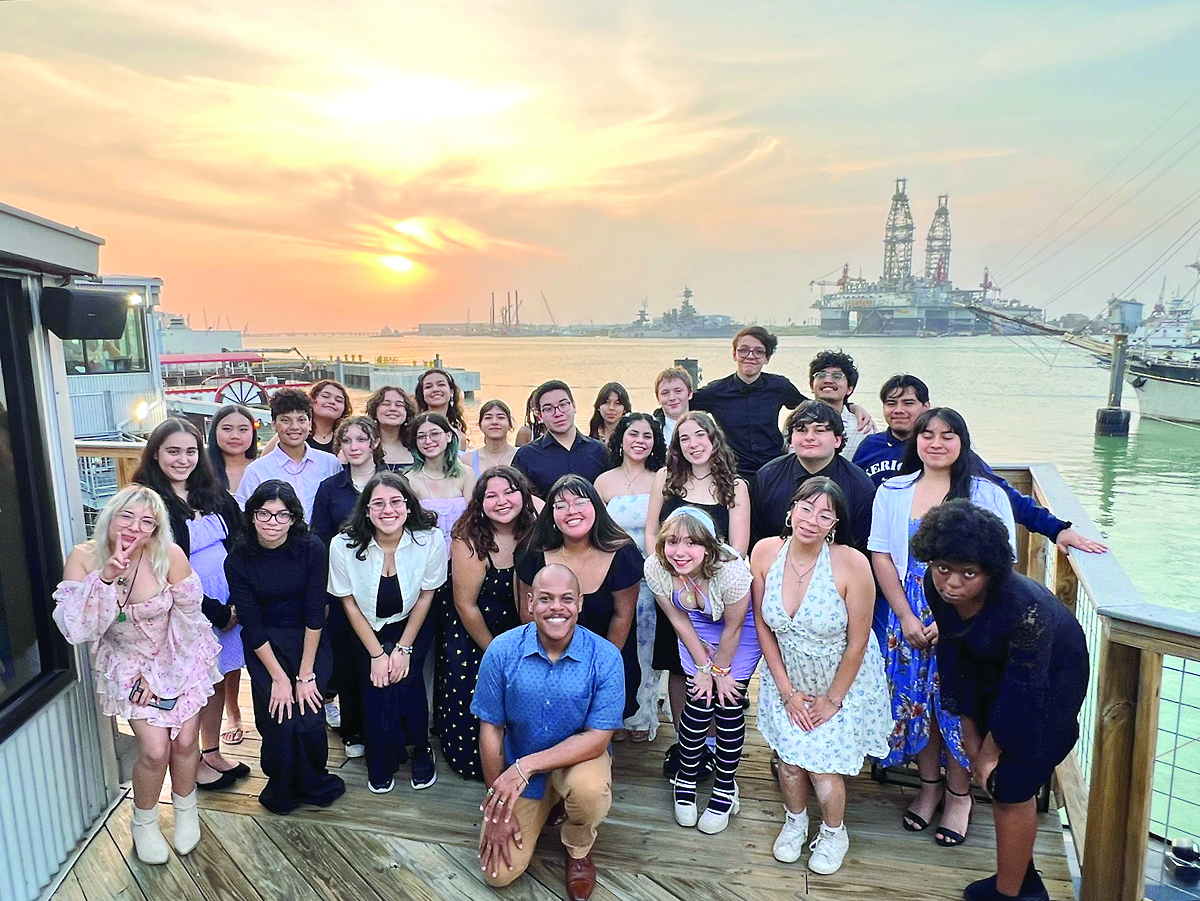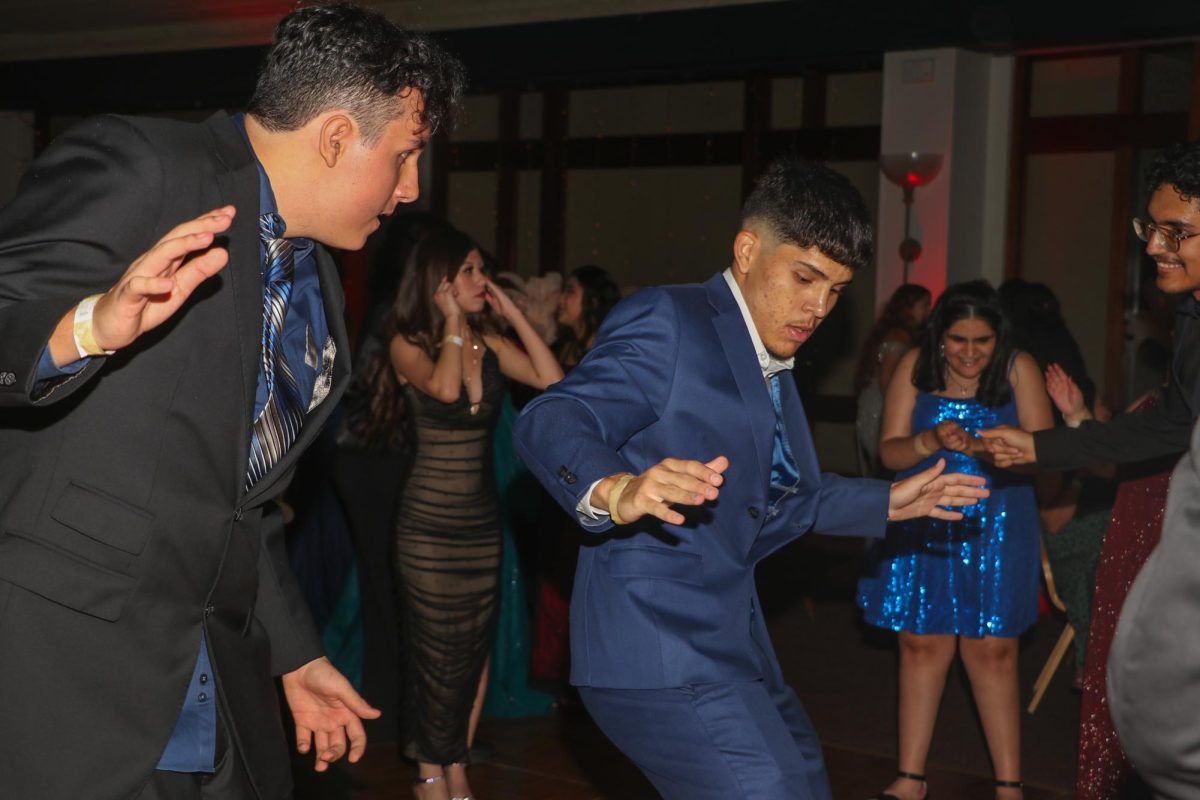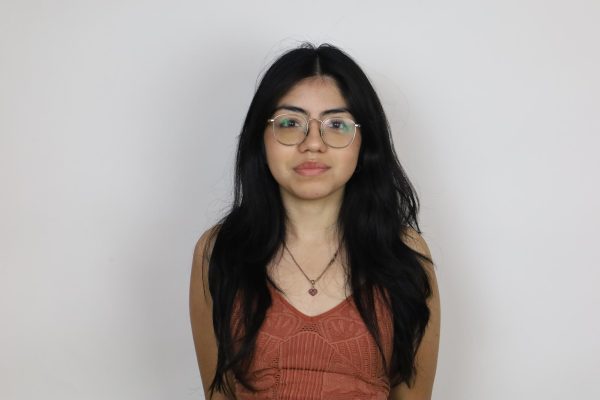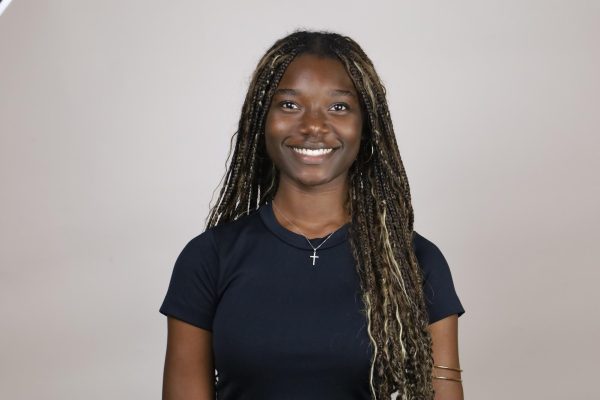This summer, Carman De Leon took over leadership at Akins as the interim principal after the departure of the previous principal in June.
Before taking over as the interim principal, De Leon previously served as the assistant principal for the STEM Academy at Akins. It is her 18th year in education, and she has previously served in various roles, ranging from classroom teacher to instructional leader.
The Eagle’s Eye sat with her for an interview to talk about what it is to be the new principal and her thoughts on current issues at the school.
EE: What have your first weeks as the top principal of Akins High School been like?
De Leon: The first few weeks have actually been pretty good. They feel like they’ve had a positive start to the school year. I’ve heard some good things from teachers, students, and parents. I mean, every year starts off with its own little, you know, issues, and this year, you know, like the cell phone thing, that’s a big one, right? But you know we have to tackle those things as they come along. And I think actually it’s been pretty good, a lot better than I thought it was going to be, actually.
EE: How many years did you serve as an assistant principal at Akins before becoming the interim principal? How many total years have you worked in education? Where did you work in education before Akins?
De Leon: So this is, I believe, my 18th year of education. I was an assistant principal STEM AP for 7 years here at Akins. Prior to that, I was a teacher. I taught US History and AP Government. I taught at Bowie for a couple of years, and I taught at Del Valle for about 8 years
EE: What are some of your goals that you want to accomplish as the principal this year?
De Leon: One is an academic goal, right? So when we look at our accountability rate this past year and the year before, we were rated as a C campus, but we’re one point away from being a B campus. So we’re 79. I would like to be an 80, if not better, and I know that we can do it. I think that we need to make a few changes, that we’ve made a few changes within departments, and really, what our focus is, and I think that’s going to make a big difference. I think one of the things that we need to focus on is our CCMR, and that’s been a big thing that’s been, you know, it’s been over the last few years that we’ve been working on we do really well as a high school, and I think that’s where we’re probably going to gain that one point this next year.
For other goals, I want there to be more of a student focus here at Akins. I feel like that hasn’t been the case since I’ve been here, really focusing on, you know, students that like to do what you’re doing right, clubs, organizations, that type of thing. In the next at the end of this month, I’m hoping to set up a, I’m going to call it a student cabinet, so that we have representation from all from different student groups, and then they can meet with me, you know, every couple of months, and we can talk about, you know, how I how students feel like things are going and we can talk about things that that you would like to see, you know, or possibly change, and how students want to participate more, and, you know, just kind of every everything that we do as a school, because you can participate, going to, you know, in your clubs and organizations, and you participate in your classes. But I think there’s a lot of other things that students can participate in as well and have a say, and when we make, you know, decisions and changes for the school.
EE: What are some of your biggest challenges as the principal at Akins right now?
De Leon: The challenges are always the fact that I feel like sometimes people have a negative view of Akins, right? They have a negative view outside of Akins. People have a negative view. And that’s one of the biggest challenges, is changing the perception of, you know, what we are as a campus because, I mean, like, I see you three, you know, ladies here, and y’all are doing an amazing job, right? And no one gets to see that. And I really want that to be at the forefront of what people see, and they know about Akins. So to me, that’s a big challenge, because it really is something that’s not really so much in the school, but it’s outside, right? And really getting community partners involved in them to understand and to see everything that we do as a campus.
EE: How long do you anticipate being the interim principal? What is the status of the search for a permanent principal? Do you plan to apply to be the permanent principal?
De Leon: Well, the interim part, I mean, I don’t know when they will open up. You know, if they want to do what the district decides that they want to do, as far as the principalship, if it goes to something where they ask people to apply for the position. You know, I obviously will apply again for the position and interview for it. My hope is that you know that people are happy, that students, parents, teachers are happy with what I’m doing, that, you know, I have the ability to become the principal permanently. And you know, I’d like to be here. You know, as long as you know, as long as I can be, I’ve been here seven years already, so I wouldn’t leave if I didn’t like it, you know, if I didn’t like it, I’d probably try to find some other place. But I really like it here. I do like our students, and I feel like I do some great things here. So right now it’s on hold.
I think that with everything that the district’s dealing with, as far as the consolidations, and I don’t know if you have heard about that. Have y’all talked about that in your classes, about the consolidations within the district? So they’re going to be closing some schools, and you know, thinking about which schools to keep open, I think that’s just been on. I think that’s been the priority right now within the district. So I was told the timeline would be December, when they would start looking for the permanent principal position. But I don’t know if that’s still the case or if it’ll change. I haven’t been updated on that.
EE: The new fencing and main entrance are causing some challenges for students to access the building and move around the campus. What is the administration doing to identify problems at entrances and traffic patterns to make it easier for students to move from the portables to the main building and to enter the campus from the student parking lot?
De Leon: So the big challenge there is safety. So the whole point of the vestibule is to create an entrance where we can monitor. We have somebody monitoring who’s coming into the school at any given time. So there is a challenge in the sense of the very beginning of school, because we have a lot of students who come in at that time. I think that as we kind of get through the hiccups, because it’s brand new for even the people who are working, because we never had a system where students had to, or anybody, actually, visitors, had to come in through one door, come into the main office, and then come to the main school. But that’s the way it is around on just about every other campus, and all elementary schools, middle school campuses have; they’re always built that way to begin with. So it’s very different for us here.
But I do think that overall, the whole goal of safety is at the forefront. And I think that’s the most important thing. So like, if we have to, have somebody go there in the morning to open doors for students. You know, it’s not the most ideal thing, but it, you know, it allows us to have, still have an entrance where we can monitor who’s coming in at any given time. As far as the fencing around the school, what we’ve been doing is just looking at patterns and seeing, like, how it’s working, right? How is it happening? And are students able to get from point A to point B in the time that they need to? And so Mr. Williams, who is the SSA, AP, he’s out there in the portables, and he’s just always kind of watching to see what that looks like. So we can determine if we need open gates, if we don’t need open gates. And that way we can monitor the flow during passing periods or the beginning of school, and the end of school. Those are really the high traffic times. Other than that, the idea behind having all the fencing and once we get it locked, like over here between the cafeteria and red hall, and over there in the portables, once those are actually locked and we get the locks for it that would enable us to unlock the doors right here—the doors right here in the foyer, it’ll allow us to unlock the doors at the end of Red Hall. And so then you won’t have the barrier of having a locked door. The only reason we have to have those doors locked right now is because it’s not a secure perimeter.
EE: What are some of the challenges with enforcing the new state law that bans cell phone use during the day?
De Leon: The biggest challenge is passing periods and lunchtime. From what I’ve heard in the classrooms, for the most part, is teachers have said that students have done a great job. They’ve had their cell phones away for the most part; there haven’t been a lot of cell phones taken up during class time, and that, really, to me, is the most important time. I don’t necessarily agree with the lunchtime thing, but that’s not my call, you know, so. But that is the hardest part, because it’s when we talk about manpower and who’s really monitoring lunchtime and the vast amount of space that we have, that’s really the challenge. Is that hallways too, right? Because there’s we, you know, traffic, there’s a lot of students in the hallways. There are not as many adults as there are students, obviously. I feel like we’re always on a repeat of just reminding kids, put your phones away, put your phones away, put your phones away.
But I will say that large scale, and looking at it overall, it’s actually gone way better than I thought that it would. I think most students have done well. They’ve had them away. They’re put away. It’s not an issue for most students. It is a small percentage, you know, but that’s with anything. But to me, that’s the biggest, that’s been the biggest hurdle. I don’t think I kind of anticipated there being more pushback as far as that. But I think also we think that students also understand that it’s not the teachers, it’s not me, implementing it. That was the state that implemented it, so we kind of have to go by whatever that state law is, but I think that has made it a little easier for staff, because it’s not our personal thing, but I do wish that students had at least the downtime during lunchtime, because it is your lunchtime.


